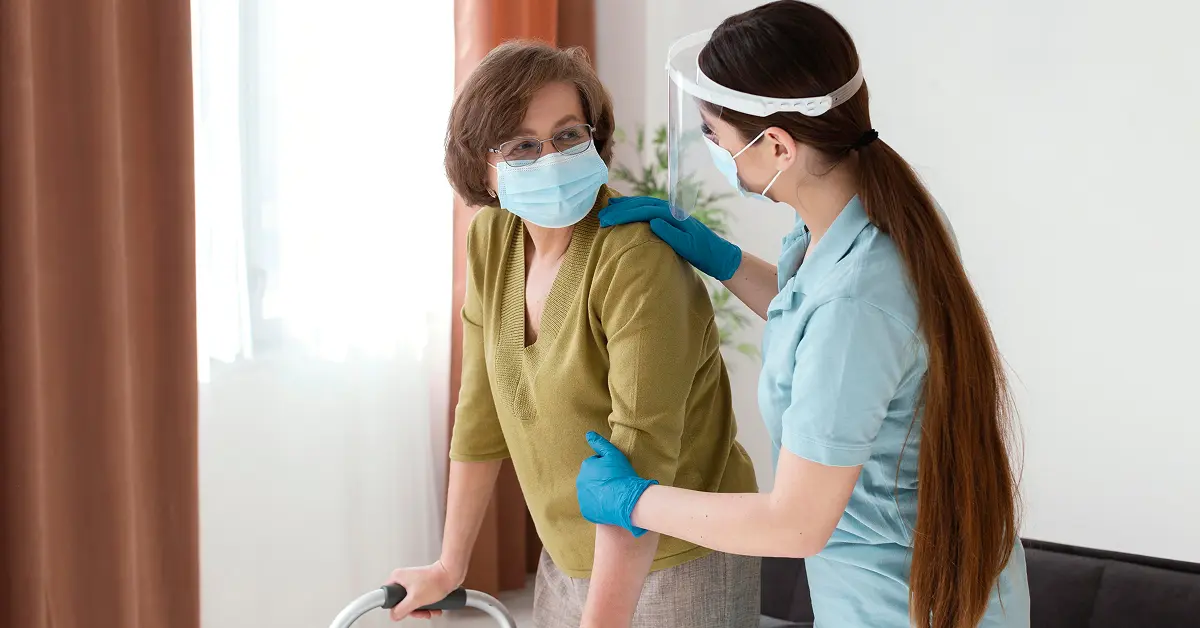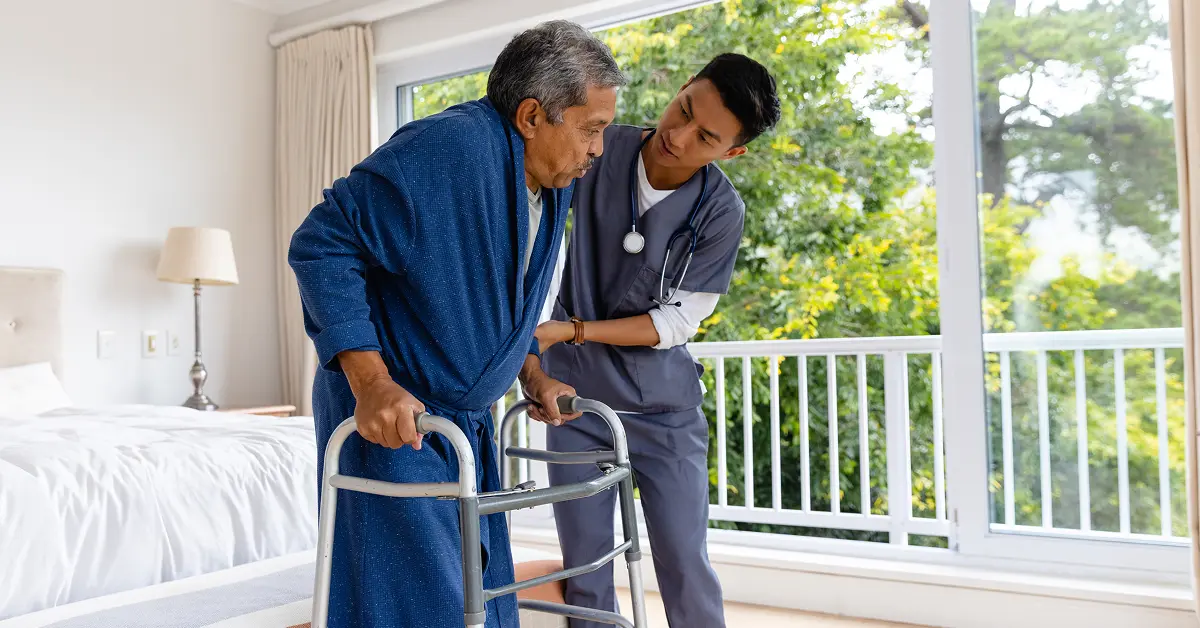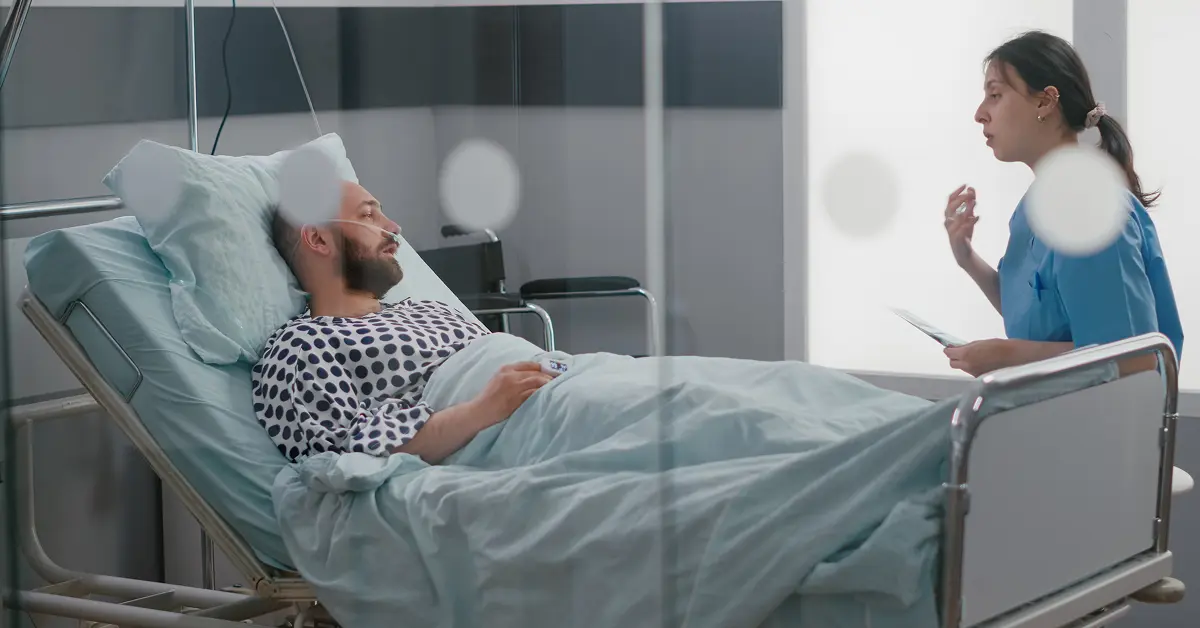Recovering at home after a hospital stay is one of the most crucial stages in a patient’s healing journey. While the hospital provides immediate treatment and stabilization, the transition back home requires careful attention, planning, and support. Hospital Discharge often referred to as post-acute care or transitional care, ensures that patients continue to recover smoothly without complications.
In India, where families play a central role in caregiving, the demand for professional home healthcare services has grown significantly. Whether it’s after surgery, illness, accident, or chronic condition management, proper post-hospital care can prevent readmissions, speed up recovery, and improve the patient’s overall well-being.
Why Post-Hospital Care is Important
The period immediately after discharge is delicate. Many patients are still weak, emotionally drained, or unable to perform daily activities. Lack of proper care at this stage can lead to:
- Delayed recovery due to missed medications or improper diet.
- Hospital readmissions because of infections or complications.
- Emotional distress from being left unattended.
- Burden on family members who may not be trained in caregiving.
Post-hospital care bridges the gap between hospital treatment and independent living, offering a safe and supportive environment for patients to regain strength.
Key Elements of Post-Hospital Care at Home
Professional Nursing Care
A trained home nurse is often essential for patients who have undergone surgery, are on IV medications, or need wound care. Nurses ensure:
- Proper wound dressing and infection prevention.
- Monitoring of vital signs such as blood pressure, temperature, and sugar levels.
- Administration of medicines on time.
- Handling medical equipment like catheters, oxygen cylinders, or feeding tubes.
Assistance with Daily Activities
Patients recovering from illness or surgery often struggle with routine tasks like bathing, dressing, eating, or walking. Attendants or caregivers at home can provide support in:
- Mobility assistance (especially for bedridden patients).
- Personal hygiene and grooming.
- Serving nutritious meals at the right time.
- Helping patients stay comfortable and relaxed.
Medication Management
One of the biggest challenges after discharge is adhering to prescriptions. Missing doses or overdosing can cause setbacks. Post-hospital care ensures:
- Timely reminders for medication.
- Proper dosage monitoring.
- Coordination with doctors in case of side effects.
Physiotherapy and Rehabilitation
For patients who have undergone orthopedic surgeries, strokes, or long hospital stays, physiotherapy plays a vital role. A home physiotherapist can:
- Help improve mobility and muscle strength.
- Provide exercises tailored to recovery needs.
- Reduce the chances of permanent disability.
- Speed up overall healing.
Diet and Nutrition Planning
Nutrition is a core element of recovery. After hospital discharge, the patient’s diet must be customized to support healing. Post-hospital caregivers ensure:
- Preparing meals as per the doctor’s advice.
- Maintaining a balanced intake of proteins, vitamins, and minerals.
- Avoiding food that may interfere with medications.
Emotional and Mental Support
Recovering patients often experience anxiety, frustration, or depression due to physical weakness and lifestyle changes. Professional caregivers provide not just medical support, but also companionship. Regular interaction, encouragement, and a positive environment can significantly improve recovery speed.
Regular Doctor Consultations
Post-hospital care also includes scheduling follow-ups with doctors. Many healthcare providers in India now offer online doctor consultations to reduce the hassle of traveling for patients.
Benefits of Post-Hospital Care in India
- Comfort of Home – Patients recover faster in familiar surroundings with family nearby.
- Reduced Costs – Home care is often more affordable than extended hospital stays.
- Lower Risk of Infections – Hospitals can expose patients to infections, while home care offers a safer environment.
- Personalized Attention – One-on-one care ensures the patient’s needs are prioritized.
- Family Involvement – Families can actively participate in the healing journey.
Common Situations Requiring Post-Hospital Care
- Post-surgery recovery (orthopedic, cardiac, or neurological surgeries).
- Stroke rehabilitation requiring physiotherapy and mobility support.
- Elderly care after hospitalization for chronic conditions like diabetes or hypertension.
- Palliative care for patients with terminal illnesses.
- Accident recovery with long-term mobility restrictions.
Choosing the Right Post-Hospital Care Service in India
When selecting a caregiver or nursing service, consider:
- Qualified staff – Ensure nurses or attendants are certified and trained.
- Experience – Check if they have handled similar recovery cases.
- Availability – Decide between 12-hour or 24/7 support based on needs.
- Reputation – Read reviews or take recommendations from hospitals.
- Affordability – Compare costs but never compromise on quality.
Many professional healthcare providers in India, especially in metro cities like Delhi, Mumbai, Bangalore, and Hyderabad, offer comprehensive home healthcare packages for post-hospital care.
Role of Family in Post-Hospital Recovery
While professional support is important, the role of family cannot be ignored. Small gestures like spending time with the patient, motivating them to follow their recovery plan, or simply offering emotional strength go a long way in healing.
- Keep the home environment stress-free.
- Encourage hobbies like reading, light music, or gardening.
- Celebrate small milestones in recovery.
- Ensure open communication with doctors and caregivers.
Challenges in Post-Hospital Care
While beneficial, post-hospital care comes with challenges such as:
- Lack of awareness about professional home care services.
- Difficulty in arranging specialized equipment at home.
- Emotional strain on family members.
- Financial concerns for long-term care.
However, with proper planning and reliable healthcare providers, these challenges can be managed effectively.
Final Thoughts
Post-hospital care at home is not just about medical attention—it is about creating a healing ecosystem where patients feel safe, loved, and supported. In India, where healthcare costs are rising and families often juggle between work and caregiving, professional post-hospital care services provide the perfect balance.
Whether it’s through trained nurses, physiotherapists, or attendants, ensuring a structured care plan after hospital discharge can prevent complications, improve recovery time, and enhance quality of life.
If your loved one is returning home after hospitalization, investing in the right post-hospital care is the most meaningful step you can take toward their smooth recovery and long-term well-being.
Contents
- Why Post-Hospital Care is Important
- Key Elements of Post-Hospital Care at Home
- Benefits of Post-Hospital Care in India
- Common Situations Requiring Post-Hospital Care
- Choosing the Right Post-Hospital Care Service in India
- Role of Family in Post-Hospital Recovery
- Challenges in Post-Hospital Care
- Final Thoughts
Our 24*7 services
Latest Posts
- What Is Respite Care and Why Is It Important
- Affordable home care for senior citizens in India
- Caring for Seniors with Dementia or Alzheimer's at Home
- Senior Caregiving A Guide for Every Family
- How to Write a Caregiver Resume That Gets You Hired
- How Care After Hospital Discharge Speeds Up Recovery at Home
- How to Get Home Health Care for Seniors Through Medicare
- What Does a Senior Citizen Caregiver Really Do at Home
- How to Care for Elderly Parents with Alzheimer’s or Dementia
- How to Get 24-Hour Care for Seniors at Home



